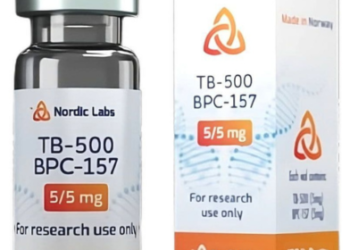1. Introduction to Baby Skin Allergies
Baby skin allergies can be distressing for both infants and parents. These allergies often manifest as rashes, itching, and redness. Understanding natural home remedies can help soothe your baby’s delicate skin and alleviate discomfort safely and effectively.
2. Importance of Gentle Skin Care
Babies have sensitive skin that requires gentle care. Using natural and mild remedies helps prevent further irritation and provides relief. Prioritizing gentle skin care ensures your baby’s skin stays healthy and comfortable.
3. Identifying Common Skin Allergies in Babies
Common skin allergies in babies include eczema, contact dermatitis, and hives. Identifying the specific type of allergy is crucial for choosing the appropriate home remedy. Knowing the symptoms and triggers helps in managing these conditions effectively.
4. Oatmeal Baths for Soothing Skin
Oatmeal baths are a popular remedy for soothing itchy and irritated skin. Colloidal oatmeal has anti-inflammatory properties that can help reduce redness and itching. Adding finely ground oatmeal to your baby’s bath can provide immediate relief.
5. Coconut Oil for Moisturizing
Coconut oil is a natural moisturizer that can help soothe and hydrate your baby’s skin. Its antibacterial and anti-inflammatory properties make it an excellent choice for treating skin allergies. Apply a small amount to the affected area for gentle relief.
6. Aloe Vera for Cooling Relief
Aloe vera is known for its cooling and healing properties. Applying aloe vera gel to irritated skin can help reduce redness and soothe itching. Ensure the gel is pure and free from added chemicals to avoid further irritation.
7. Breast Milk for Healing
Breast milk is a natural remedy with antibacterial and anti-inflammatory properties. Applying a few drops of breast milk to the affected area can help heal rashes and soothe itching. This remedy is especially useful for diaper rash and eczema.
8. Chamomile Baths for Calming
Chamomile has anti-inflammatory and calming properties that can help soothe your baby’s skin. Adding chamomile tea bags to your baby’s bathwater provides a relaxing and healing soak. Ensure the water is lukewarm to avoid further irritation.
9. Baking Soda Baths for Itch Relief
Baking soda can help neutralize acids and relieve itching. Adding a small amount of baking soda to your baby’s bath can provide relief from itchy rashes. Use this remedy sparingly to avoid drying out the skin.
10. Shea Butter for Deep Moisturization
Shea butter is a natural moisturizer rich in vitamins and fatty acids. It helps soothe and hydrate dry, irritated skin. Applying shea butter to the affected areas provides deep moisturization and relief from itching.
11. Calendula Cream for Healing
Calendula cream is known for its healing and anti-inflammatory properties. It can help soothe and heal skin rashes, reducing redness and swelling. Use a natural calendula cream free from harsh chemicals for best results.
12. Apple Cider Vinegar for Balancing pH
Diluted apple cider vinegar can help balance the skin’s pH and reduce itching. Mixing equal parts of apple cider vinegar and water and applying it with a cotton ball can provide relief. Ensure the solution is well-diluted to avoid irritation.
13. Honey for Antibacterial Benefits
Honey has natural antibacterial properties that can help heal skin allergies. Applying a thin layer of honey to the affected area can soothe and protect the skin. Ensure the honey is pure and not mixed with any additives.
14. Cold Compress for Instant Relief
A cold compress can provide immediate relief from itching and swelling. Wrap a few ice cubes in a soft cloth and gently apply to the affected area. This remedy helps reduce inflammation and numbs the area, providing quick relief.
15. Epsom Salt Baths for Detoxification
Epsom salt baths can help detoxify the skin and reduce inflammation. Adding a small amount of Epsom salt to your baby’s bathwater can soothe irritated skin. Ensure the salt is fully dissolved and the water is lukewarm.
16. Olive Oil for Nourishing the Skin
Olive oil is a gentle moisturizer that can help nourish and hydrate your baby’s skin. Applying a small amount of olive oil to the affected area provides relief from dryness and itching. Use extra virgin olive oil for its purity and effectiveness.
17. Proper Hydration
Keeping your baby well-hydrated is essential for maintaining healthy skin. Ensure your baby drinks plenty of fluids, especially if they are breastfeeding. Proper hydration helps keep the skin moisturized and less prone to irritation.
18. Avoiding Common Irritants
Identifying and avoiding common irritants is crucial for managing skin allergies. This includes avoiding harsh soaps, synthetic fabrics, and certain foods. Using hypoallergenic products and dressing your baby in soft, natural fabrics can help prevent allergic reactions.
19. Maintaining a Cool Environment
A cool and comfortable environment helps prevent sweating and irritation. Keep your baby’s room well-ventilated and at a comfortable temperature. Avoid overdressing your baby to prevent heat rashes and itching.
20. Gentle Clothing Choices
Choosing the right clothing can make a significant difference in managing skin allergies. Dress your baby in soft, breathable fabrics like cotton. Avoid tight-fitting clothes and opt for loose, comfortable garments to reduce irritation.
21. Regular Diaper Changes
Frequent diaper changes help prevent diaper rash and skin irritation. Use fragrance-free and hypoallergenic baby wipes, and ensure the diaper area is clean and dry before putting on a new diaper. Applying a diaper cream can provide additional protection.
22. Regular Moisturizing
Regular moisturizing helps maintain the skin’s barrier and prevents dryness. Use gentle, hypoallergenic moisturizers to keep your baby’s skin hydrated. Applying moisturizer after baths locks in moisture and keeps the skin soft and supple.
23. Monitoring for Allergic Reactions
Closely monitor your baby’s skin for any signs of allergic reactions. Early detection and intervention can prevent the condition from worsening. Consult a healthcare provider if you notice persistent or severe symptoms.
24. Consulting a Pediatrician
While home remedies can provide relief, it’s important to consult a pediatrician for persistent or severe skin allergies. A healthcare provider can offer professional advice, prescribe medications if necessary, and help identify specific allergens.
25. Conclusion: Gentle Care for Baby’s Skin
Managing baby skin allergies requires a gentle and mindful approach. Using natural home remedies, avoiding common irritants, and maintaining a healthy environment can provide relief and keep your baby’s skin healthy. Prioritizing gentle care ensures comfort and well-being for your little one.










